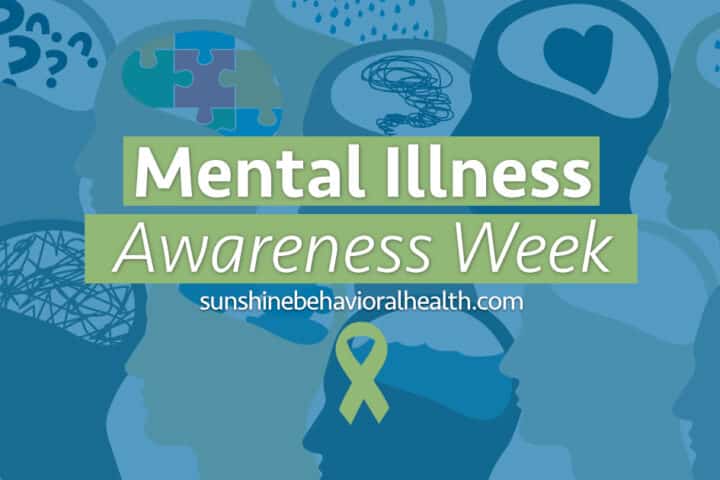
Mental Illness Awareness Week: What Do People with Mental Illness Want You to Know?
We commemorate Mental Illness Awareness Week every October. For 2020, the theme of this week was What People with Mental Illness Want You to Know.
This theme is important. Mental illnesses, which include substance abuse, are misunderstood. So are the people who have them.
Why are mental illnesses complex?
Mental illnesses can be different from person to person. One person might experience depression symptoms and cope with depression very differently from another.
In addition, people might experience multiple mental illnesses at once or have mental illnesses in addition to other medical conditions. Mental illness isn’t one thing. It’s many.
But, since mental illness is complex, it’s easy to make assumptions. As humans, we make assumptions and categorize things to make them easier to understand, easier to handle.
There’s an old expression, “When I assume something, I make an ass out of u (you) and me.” It’s funny, but there might be a little truth to it.
Instead of assuming things about mental illness, maybe we can take some time to listen to what people with mental illnesses want us to know.
How to learn
Luckily, listening doesn’t have to be difficult. If a person is talking about their illness, we can simply listen without interjecting our opinions about when they’re experiencing or what they should do.
Even if we do know what they’re experiencing and how to help, maybe that isn’t what the person needs at that moment. Maybe they just want someone to listen to them without adding their own opinions or judgment.
If other people do want us to talk, maybe we can ask questions. We can stress that we’re not trying to pry but are sincerely interested in their feelings, thoughts, and experiences.
We can ask them to talk more about a subject that they’ve already discussed. This can help us understand things more in depth. It might also help people with mental illnesses. Sometimes, talking about things can help us view them with different perspectives.
We don’t know everything. But by listening to people with mental illnesses, we can learn a few things that can help us be more compassionate and understand them – and mental illnesses – a little better.
Sources
talkspace.com – 10 Misleading Assumptions About Mental Illness: Learn the Truth
mentalhealth.org.uk – How to Support Someone with a Mental Health Problem
A Message From Our CEO
Medical disclaimer:
Sunshine Behavioral Health strives to help people who are facing substance abuse, addiction, mental health disorders, or a combination of these conditions. It does this by providing compassionate care and evidence-based content that addresses health, treatment, and recovery.
Licensed medical professionals review material we publish on our site. The material is not a substitute for qualified medical diagnoses, treatment, or advice. It should not be used to replace the suggestions of your personal physician or other health care professionals.





